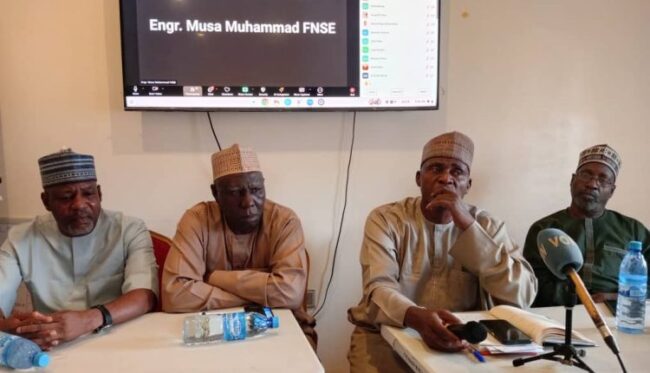The Centre for Information Technology and Development (CITAD), in collaboration with the Association of Professional Bodies of Nigeria (APBN), Kano State chapter, has organised a stakeholder meeting to discuss the ongoing energy and economic crisis in Northern Nigeria, especially focusing on the persistent power outage affecting the region.
The power blackout in Northern Nigeria has continued to generate concern among stakeholders, who are seeking lasting solutions. The Executive Director of CITAD, Yunusa Ya’u, highlighted that the purpose of the gathering was to “cross-fertilize ideas on the Northern Blackout and find solutions.”
He emphasized, “It’s important to move away from the usual discussion and collectively see to the problem, challenges and possible solutions and offer prospects on how to implement them to avoid future occurrence.”
Meanwhile, the Chief Technical Officer of the Kano Distribution Company (KEDCO), Kasim Abdullahi Burkullu, pointed out that the current transmission system is unsustainable and requires a review. He explained, “The grid was supposed to be a ring system, not radial, so, when we had a problem from one of the lines, we jumped on the other, but vandals destroyed two of the towers.”
According to him, “Whenever you have a radial system, you always have this kind of problem.”
Burkullu further noted, “The prospect of investment in northern Nigeria is gigantic. We need a redirection and reverse the attitude of ‘only the government can do anything for us.’ There are a lot of prospects to reduce this kind of situation we are in.”
“The issue of vandalism is quite systemic and has eaten into the fabric of other sectors,” noted Ahmad Sajoh, a former Commissioner for Information in Adamawa and Senior Public Affairs Analyst, addressing the current energy crisis. “What is happening is an eye-opener and a wake-up call to see how we can come out of this situation.”
On potential solutions, Sajoh highlighted the need for unified leadership and political will to move the region forward. “Strengthening the national grid is the best option for now. The radial method has always been known to be the weakest form of transmission. There is a need for a better system.”
He added, “Those of us in the far north–northeast, our power generation map is not there, and it’s dangerous. If not looked into, we will continue to suffer. Our leaders are not even thinking of cleaner energy options. I believe they are working to restore it, but that’s the only thing they can do as of now.”
In a separate statement, Ahmad Muhammad Sarari, former National President of the Motion Pictures Practitioners Association of Nigeria (MOPPAN), revealed the toll of the blackout on the entertainment industry. “The power blackout has resulted in the loss of billions already in the entertainment industry alone, besides other sectors,” he stated. “More than 5,000 studios in Northern Nigeria, where productions are taking place, have been grounded due to the blackout, making producers lose billions of Naira.”
Engr. Musa Muhammad, participating via webinar, attributed the crisis to poor leadership, expressing frustration over stalled projects that could mitigate the issue. “It is a lack of good leadership that is keeping the North where it is. All that we have talked about, AKK gas pipeline project—how many of us are following up on that? Where is the project now? If that is finished, we can build power plants in Kano, Kaduna.”
ALSO READ THESE TOP STORIES FROM NIGERIAN TRIBUNE
